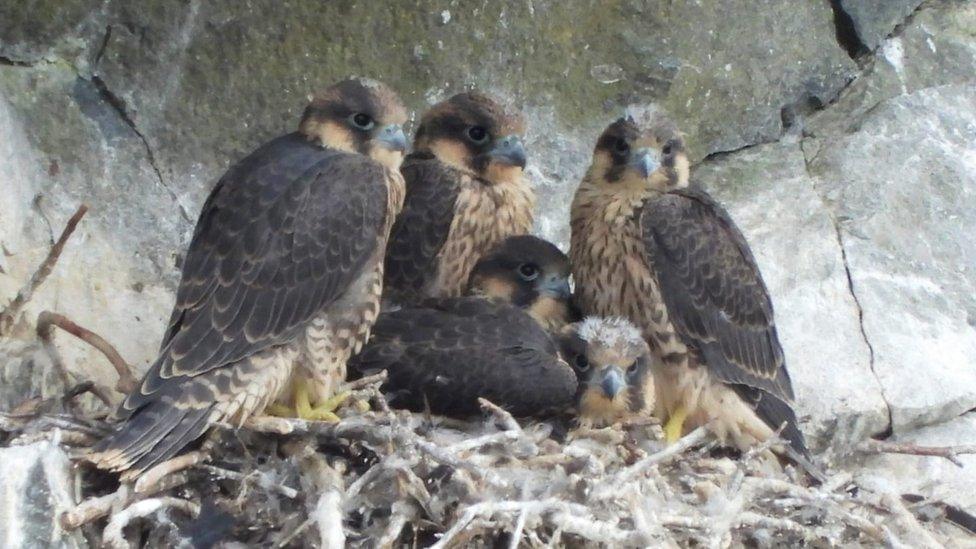Curlews: Hidden camera captures life of endangered birds
- Published
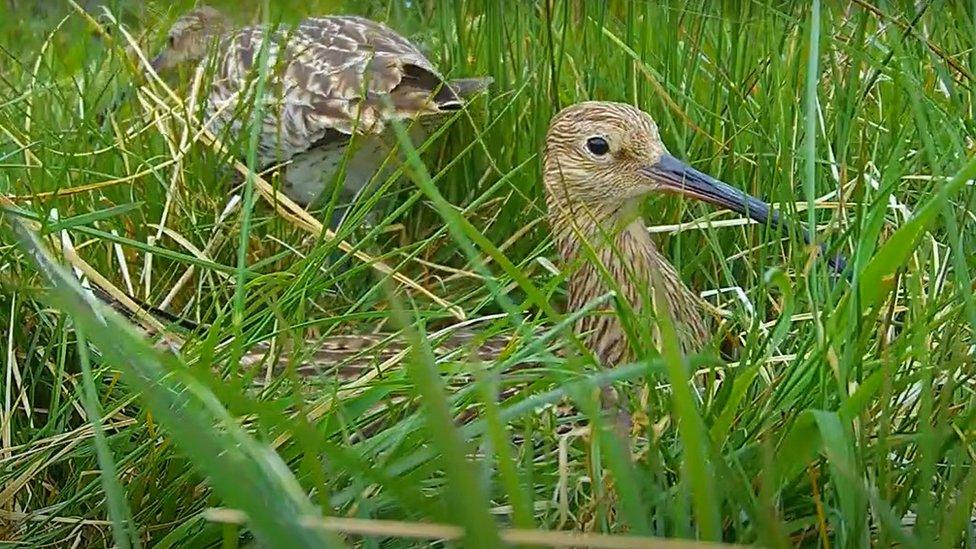
Luna and Bill are the stars of the hidden camera project
One of Northern Ireland's most endangered birds is the subject of a wildlife cam project run by the RSPB.
A hidden camera has been installed close to a pair of curlew nests in the Antrim Hills.
It is the second year the project has been run, with thousands of people tuning in around the world last year.
RSPB NI's Katie Gibb said there are thought to be as few as 250 pairs of curlews left in Northern Ireland.
"Sadly these special birds are in real trouble and could be extinct here in the next 10 years without our help," she said.
"Their numbers have declined by 82%."
The curlew was once common in Northern Ireland with up to 5,000 breeding pairs in the 1980s.
But changes in farming led to the loss of suitable habitat and pressure from predators, like foxes and crows, saw numbers of the ground-nesting birds plummet.
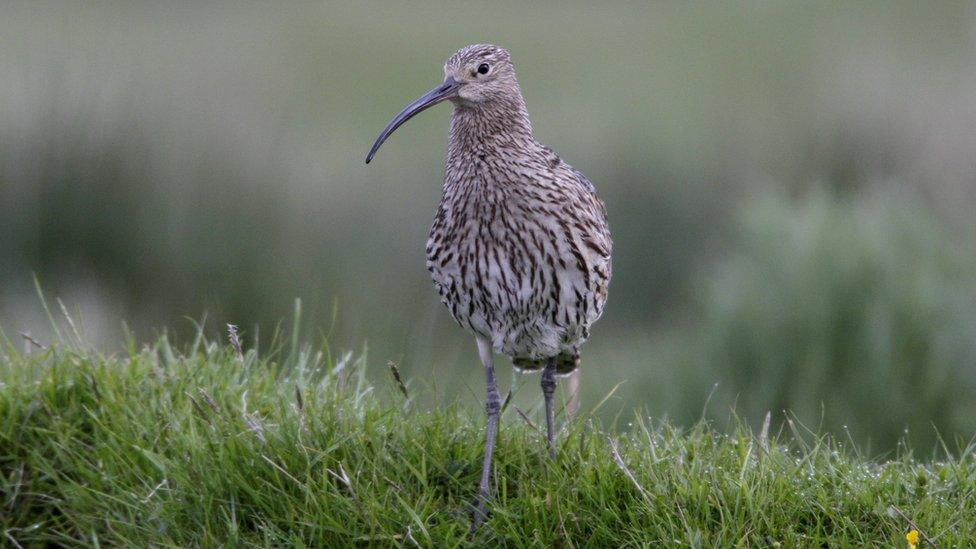
There are thought to be as little as 250 pairs of curlews left in Northern Ireland
Ms Gibb said the footage being captured by the hidden camera "is just breath-taking".
"The stars of the show are Luna and Bill - named for one of their most distinctive features, their crescent-moon shaped beaks," she said.
"Right now, they are taking it in turns to incubate their four eggs.
"It's addictive viewing, and over the next 10 days the drama will really unfold.
"Viewers will see romance, hear their tuneful vocals, and wait in suspense for their fluffy chicks to hatch.
"Already their personalities are shining through - Luna is quite the character, she's a plucky female who isn't easily ruffled and her partner Bill is a devoted parent, who will happily take the night shift."
She said curlews are a species that people emotionally connect with as they are associated with Irish folklore.
"RSPB NI is working with land-owners, farmers and local communities, to help change their fortunes and secure the future of breeding curlews in the Antrim Hills and Lough Erne as part of the Curlews in Crisis project," Ms Gibb added.
The project will run until mid-June and can be viewed on the RSPB NI's website, external.
Related topics
- Published2 April 2020
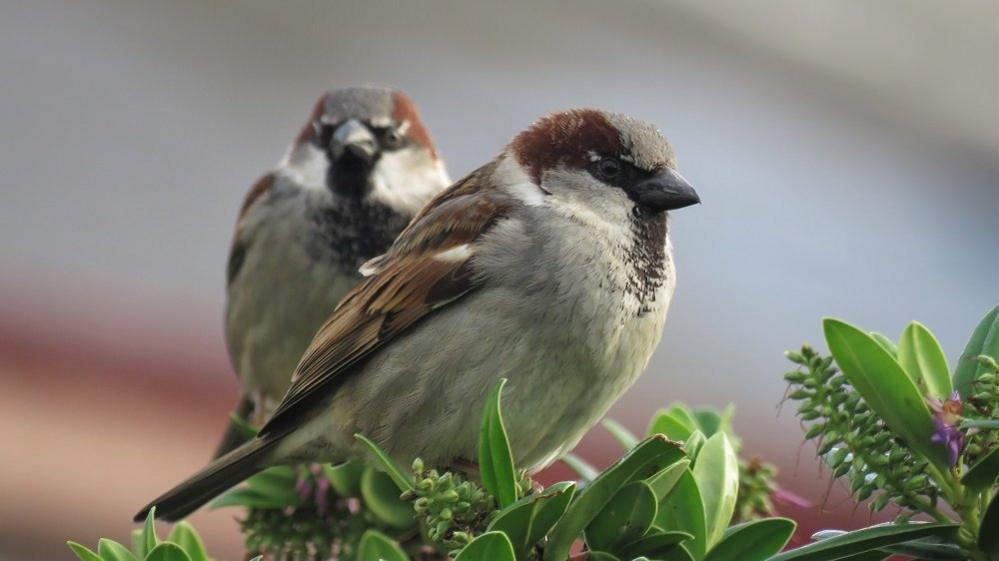
- Published28 December 2019
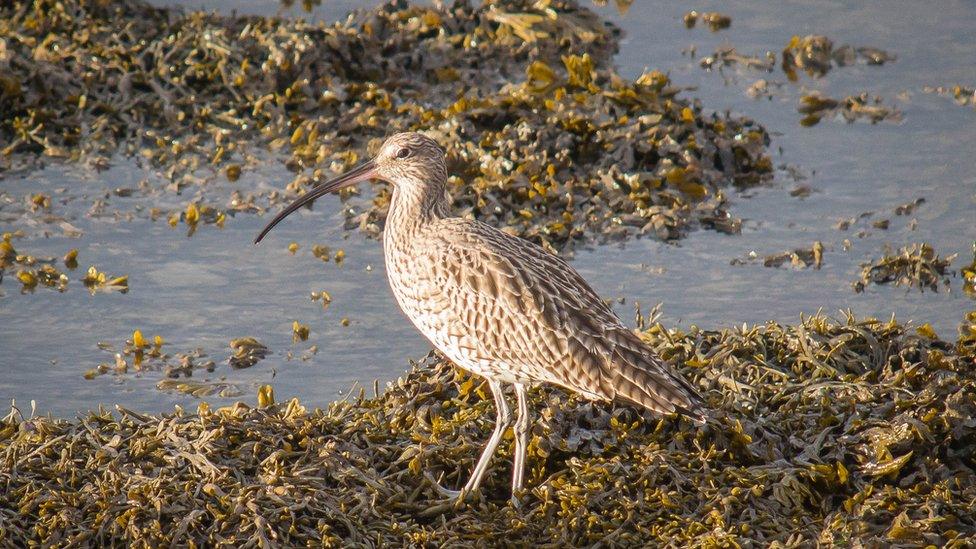
- Published12 June 2020
